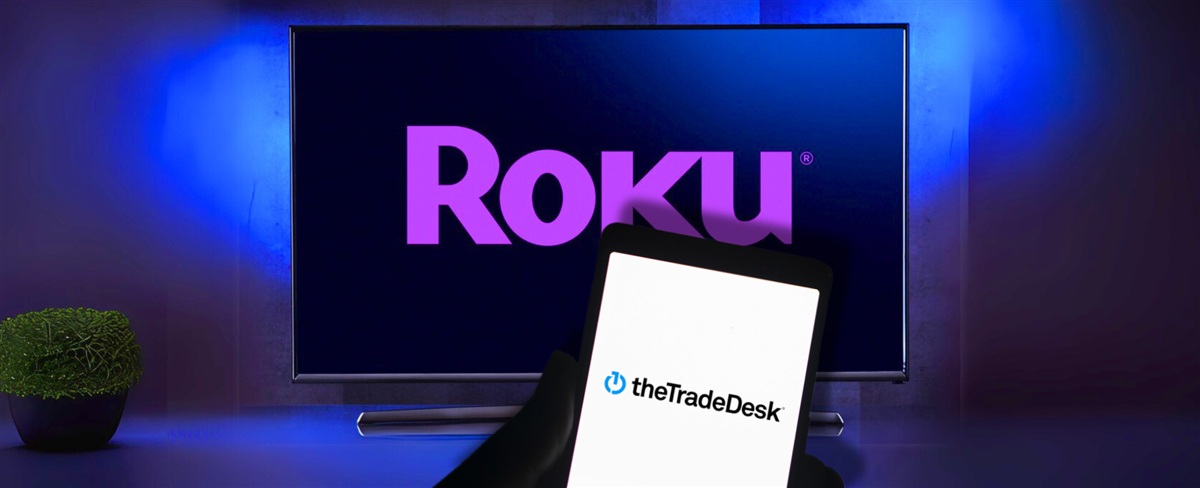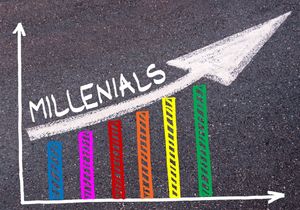
A merger between streaming technology and connected TV (CTV) leader Roku Inc. (NASDAQ: ROKU) and adtech leader The Trade Desk Inc. (NASDAQ: TTD) was suggested by a Guggenheim analyst, causing both stocks to rise. Roku shares rose over 20% following the suggestion on Dec. 2, 2024, while The Trade Desk shares rose 10%. The market reaction was notable since a merger was just a “what-if” scenario not rooted in any reality or interaction between the companies. The stocks reacted as if there were active talks. It has gotten many analysts and investors to ponder the synergies if it ever came to fruition. Let’s take a look at what each company brings to the table and if a merger of these two computer and technology sector leaders actually makes sense.
Roku: The Largest Streaming TV Platform Launched Its Own AdTech Platform
Early adopters of connected TV (CTV) may have been introduced to streaming video content and movies using a Roku device or streaming stick. Roku initially made devices that would connect the television to the streaming networks, thus spawning the CTV. Roku created its own Roku Smart TV Operating System (OS), which enables smart TVs to access streaming networks. Initially licensing Roku OS to smart TV manufacturers, Roku has started to manufacture its smart TV with Roku OS installed. Roku OS is a consumer-facing OS that aggregates and delivers streaming content.
Roku is the largest streaming TV platform, with over 80 million active users and 120 million viewers in the United States. It has the most streaming apps of any streaming platform. Roku competes with Alphabet Inc. (NASDAQ: GOOGL), Google TV OS, Walmart Inc. (NYSE: WMT), VIZIO, and SmartCast OS.
While Roku currently works with The Trade Desk, they have also launched their own programmatic self-service adtech platform, Roku Ads Manager (RAM). RAM enables advertisers to buy and manage data-driven ad campaigns directly on the Roku platform, which includes Roku TVs, Roku devices, and the Roku Channel. The Trade Desk offers its programmatic platform to advertisers to manage ad campaigns across thousands of services and channels, including Roku.
The Trade Desk: The World’s Largest Independent DSP Builds a TV Operating System (OS)
When advertisers look to buy ad space for their marketing campaigns, they can engage The Trade Desk’s AI-powered data-driven Kokai platform. Kokai has access to thousands of channels, platforms, and networks. It's a media buying programmatic platform that has real-time bidding (RTB), enabling automatic purchasing of ad space. The Trade Desk is the world's largest independent DSP, which means it has no inventory of its own to sell and, therefore, has no preference or bias, unlike competing DSPs like Google, Meta Platforms Inc. (NASDAQ: META,) and Amazon.com Inc. (NASDAQ: AMZN) that have their inventory to sell.
The Trade Desk has been working on its operating system, Ventura OS. This is an advertiser-facing platform that unifies Kokai's RTB and automated media buying with AI-driven campaign management, data integration, optimization with AI-powered insights, and streamlines workflows.
Pros of a Merger: Data-Driven Dominance
A merger between Roku and The Trade Desk would integrate Roku’s self-serve ad platform into the much larger Kokai programmatic DSP, while Roku OS would integrate with Ventura OS. The combination of the nation’s largest streaming consumer-facing platform merged with the world’s largest independent advertiser-facing platform would reap oceans of data and a more vertically integrated ad ecosystem.
The depth of data from consumers and advertisers could be unprecedented, providing insights into consumer and advertiser trends, metrics, and personas. More data means better targeting for advertisers, which could bolster its business. It would also mean more revenue diversification as Roku collects revenue from its Roku Channel, Roku TVs, devices, and streaming subscriptions through its network.
Cons of a Merger: Too Many Eggs in One Basket
The downside of a merger would be the overreliance on the advertising market. If digital advertising takes a downturn, it will impact the majority of the combined entity's revenues. The combined market share of the two giants would also invite scrutiny from the regulators for potential antitrust violations. Integrating different business models and cultures between the two companies can be a struggle.
The Trade Desk would no longer be an independent DSP since it would also be Roku's ad inventory. Even if they kept the two platforms separate, the optics say otherwise. This could turn off some advertisers who want to remain with an unbiased independent DSP.
Financially, Roku has been operating at a loss for years but recently posted a profitable quarter. In contrast, The Trade Desk has remained profitable even during the advertising downturn. However, another downturn could pressure Roku's balance sheet.






